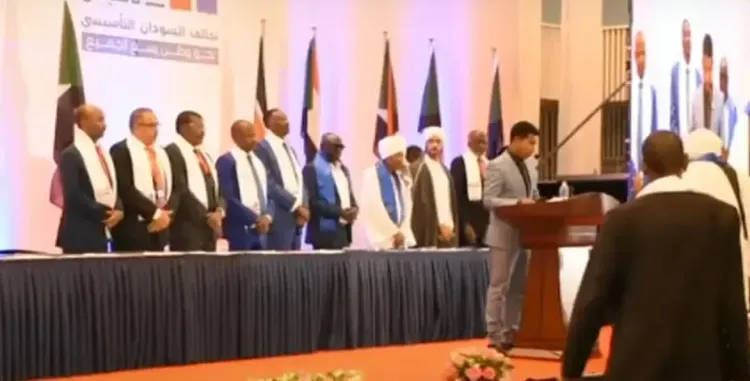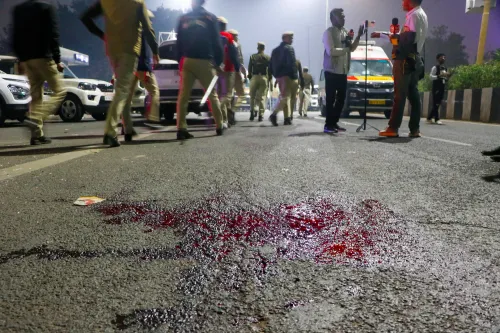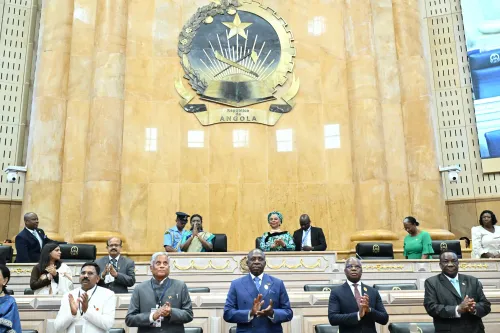Sudan's RSF and Allies Sign Agreement in Kenya for Unity Government

Synopsis
Key Takeaways
- Sudan's RSF has partnered with various factions to create a unity government.
- The charter was signed in Nairobi, Kenya, amidst opposition.
- The initiative aims to foster peace in conflict-affected regions.
- Over 20 political parties and military groups are involved.
- The Sudanese army views the agreement as illegitimate.
Nairobi, Feb 24 (NationPress) Sudan's paramilitary Rapid Support Forces (RSF) along with their partners have formalized a charter aimed at creating a unity government in the war-torn nation.
This charter was finalized in a closed-door ceremony on Sunday at 2:00 a.m. local time in Nairobi, the capital of Kenya, even amidst opposition from Sudan's Transitional Sovereign Council, led by Abdel Fattah al-Burhan, who warned that this action could exacerbate the instability in the country, as reported by Xinhua.
The agreement, which includes key figures like Abdelaziz al-Hilu, a notable rebel leader, sets the stage for the formation of the Sudan Founding Alliance. This initiative seeks to foster peace and unity in areas controlled by rebels in Sudan.
Al-Hilu heads the Sudan People's Liberation Movement-North, which governs regions in South Kordofan and Blue Nile states.
During a four-day gathering in Nairobi, essential stakeholders reached an agreement, believing it would guide the nation toward the emergence of a new Sudan, as stated by the alliance.
Over 20 political parties from across Sudan, 10 civil society organizations, and five military factions led by the RSF, among other advocacy groups, have endorsed the charter.
The parties agreed to form a new army that encompasses all regions of Sudan, refrains from political interference, halts the ongoing war, combats terrorism, and strengthens diplomatic ties with neighboring nations.
The signatories commended Kenyan President William Ruto for his neutral stance despite pressures and accusations that the Nairobi assembly was an attempt to create a parallel government in Kenya.
According to the charter's signatories, Kenya merely served as a venue for over 4,000 participants to address the fundamental issues facing Sudan and to devise solutions.
In response, the Sudanese army, under al-Burhan, has rejected this initiative as illegitimate, criticizing Kenya for facilitating the RSF, which they see as a serious violation of international legal obligations.
Khartoum has cautioned that this action could fragment African nations and infringes upon its sovereignty by meddling in internal matters.
The Sudanese government has accused the RSF of perpetuating the ongoing conflict in the nation, asserting that Kenya's hospitality towards the RSF to conduct operations is an endorsement of the alleged atrocities committed by the group.









